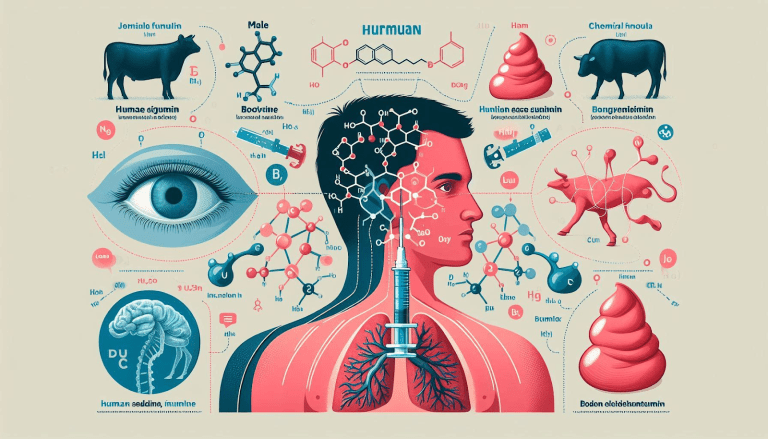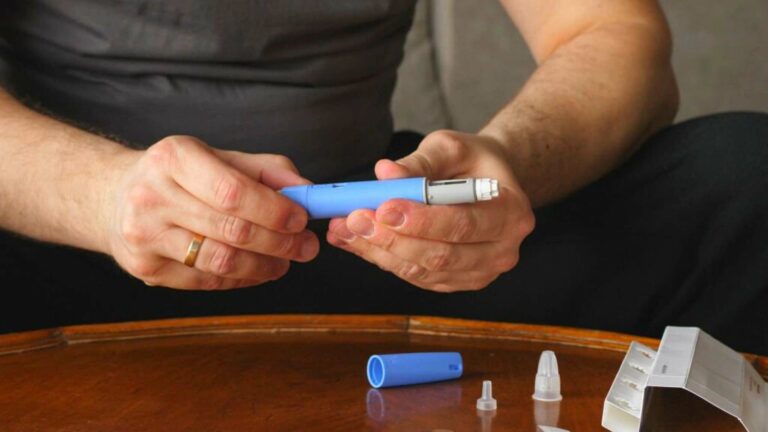Mastering the Art of Type 1 Diabetes Self-Care: A Comprehensive Guide

Living with type 1 diabetes is a daily balancing act, requiring constant vigilance and a deep understanding of how the body responds to various factors. From monitoring blood glucose levels to adjusting insulin doses and managing diet and exercise, effective self-care is crucial for maintaining overall health and well-being. In this comprehensive guide, we’ll explore the essential elements of type 1 diabetes self-care, empowering you to take control of your condition and live life to the fullest.
Understanding Blood Glucose Fluctuations
At the heart of type 1 diabetes management lies the constant monitoring and regulation of blood glucose levels. Maintaining a healthy range is essential for preventing both short-term and long-term complications associated with the condition. However, achieving this balance can be challenging, as numerous factors can influence blood glucose fluctuations.
One crucial aspect to consider is the impact of glucose changes on cognitive function. Recent research has highlighted that rapid fluctuations in blood glucose levels, both high and low, may affect thinking speed and cognitive performance. This phenomenon, known as “Glucose Changes in Type 1 Diabetes May Affect Thinking Speed,” underscores the importance of maintaining stable blood glucose levels not only for physical well-being but also for optimal mental performance.
Monitoring and Insulin Management
Effective self-care in type 1 diabetes begins with diligent monitoring of blood glucose levels. Regular testing, typically through finger-prick glucose meters or continuous glucose monitoring (CGM) systems, provides valuable insights into how your body responds to various factors, such as food, exercise, and insulin doses.
Understanding and accurately interpreting these readings is crucial for making informed adjustments to your insulin regimen. Insulin, a hormone that regulates blood glucose levels, must be carefully administered through injections or an insulin pump to maintain a healthy balance.
Collaboration with your healthcare team is essential when it comes to insulin management. Your doctor or certified diabetes educator can help you develop an individualized insulin plan based on your unique needs, lifestyle, and glucose patterns.
Dietary Considerations
What you eat plays a significant role in managing type 1 diabetes. While there is no one-size-fits-all diet, focusing on nutrient-dense, balanced meals can help regulate blood glucose levels and promote overall health.
Working closely with a registered dietitian or certified diabetes educator can help you develop a personalized meal plan that takes into account your individual preferences, lifestyle, and treatment goals. They can guide you in understanding how different foods affect your blood glucose levels and provide strategies for managing carbohydrate intake, portion control, and meal timing.
Regular Physical Activity
Exercise is a powerful tool in the management of type 1 diabetes, offering numerous benefits beyond just blood glucose regulation. Regular physical activity can improve insulin sensitivity, reduce the risk of complications, and promote overall physical and mental well-being.
However, it’s essential to understand how exercise can affect blood glucose levels. Depending on the intensity and duration of the activity, as well as your individual response, you may need to adjust your insulin doses or consume additional carbohydrates to prevent hypoglycemia (low blood sugar) during and after exercise.
Consulting with your healthcare team and developing an exercise plan tailored to your needs can help you safely incorporate physical activity into your daily routine while effectively managing your type 1 diabetes.
Stress Management and Mental Health
Living with a chronic condition like type 1 diabetes can take an emotional toll, and stress can significantly impact blood glucose levels and overall well-being. Incorporating stress management techniques into your self-care routine is crucial for maintaining a balanced and healthy lifestyle.
Practices such as mindfulness meditation, yoga, deep breathing exercises, and seeking support from loved ones or support groups can help you manage stress more effectively. Additionally, addressing any underlying mental health concerns, such as anxiety or depression, is essential for comprehensive self-care.
Regular Check-ups and Complication Screening
Routine medical check-ups and complication screenings are vital components of type 1 diabetes self-care. These appointments allow your healthcare team to monitor your overall health, assess the effectiveness of your treatment plan, and identify any potential complications early on.
Regular eye exams, foot examinations, kidney function tests, and cardiovascular screenings can help detect and prevent complications associated with type 1 diabetes, such as retinopathy, neuropathy, nephropathy, and cardiovascular disease.
By staying proactive and adhering to recommended screening schedules, you can take a proactive approach to managing your condition and maintaining optimal health.
Technology and Innovations
The world of type 1 diabetes management is constantly evolving, with new technologies and innovations emerging to improve self-care and quality of life. Continuous glucose monitoring (CGM) systems, insulin pumps, and advanced insulin delivery systems are just a few examples of the tools available to help streamline glucose management and enhance overall control.
Additionally, mobile applications and digital health platforms offer convenient ways to track blood glucose levels, log dietary intake, and even share data with healthcare providers for more effective remote monitoring and support.
Embracing these technological advancements and staying informed about the latest developments can empower you to take advantage of cutting-edge solutions that can make self-care more efficient and effective.
Building a Support System
While self-care in type 1 diabetes requires personal commitment and dedication, it is crucial to recognize that you are not alone in this journey. Building a strong support system can be invaluable in managing the challenges and emotional aspects of living with this condition.
Involving loved ones, such as family and friends, in your self-care routine can provide encouragement, motivation, and a sense of accountability. Additionally, connecting with others who understand the unique experiences of living with type 1 diabetes through support groups or online communities can offer a sense of community and shared understanding.
Advocating for Yourself
Effective self-care in type 1 diabetes extends beyond personal management and involves advocating for your needs and rights in various aspects of life. This includes educating those around you about your condition, ensuring access to proper medical care and resources, and advocating for accommodations in educational or professional settings when necessary.
Empowering yourself with knowledge about your rights and available resources can help you navigate challenges and ensure that your needs are met, ultimately enabling you to prioritize your self-care and overall well-being.
Embracing a Holistic Approach
Type 1 diabetes self-care is not just about managing blood glucose levels; it’s about embracing a holistic approach that encompasses physical, mental, and emotional well-being. By prioritizing self-care practices that promote overall health and quality of life, you can not only effectively manage your condition but also thrive in all aspects of your life.
Remember, self-care is an ongoing journey, and it’s essential to be patient, compassionate, and adaptable as your needs and circumstances evolve. Celebrate your successes, learn from setbacks, and continuously strive to improve your self-care routine for optimal health and happiness.




